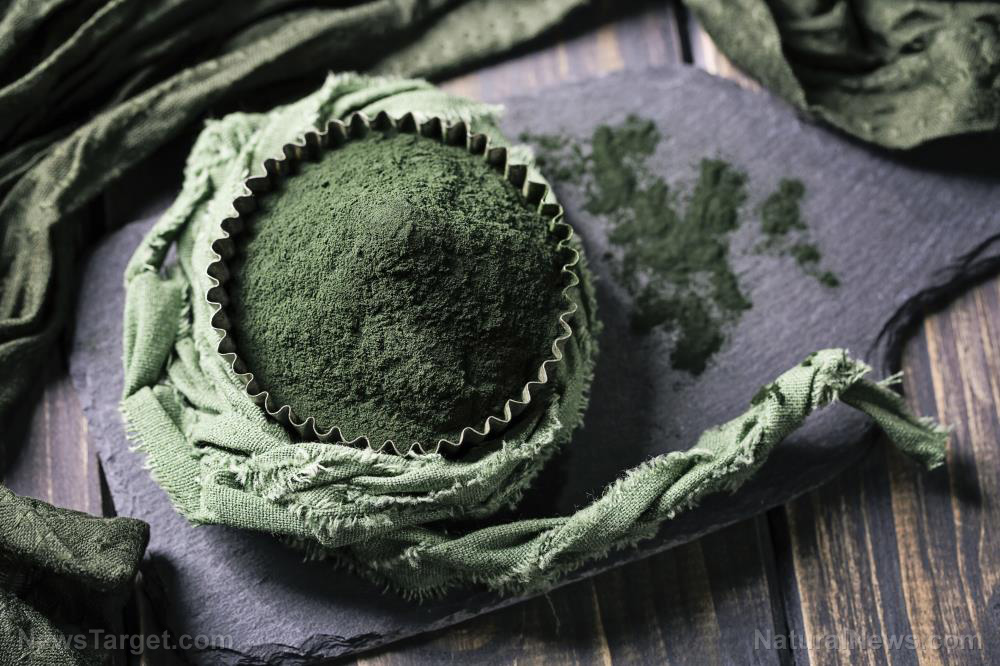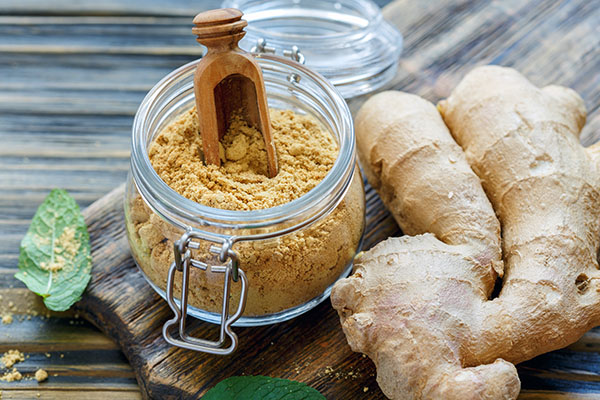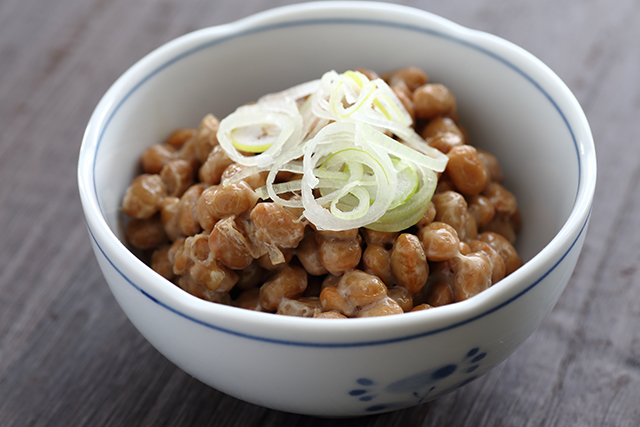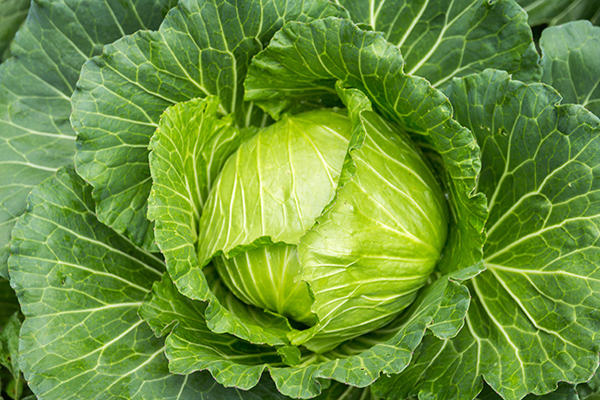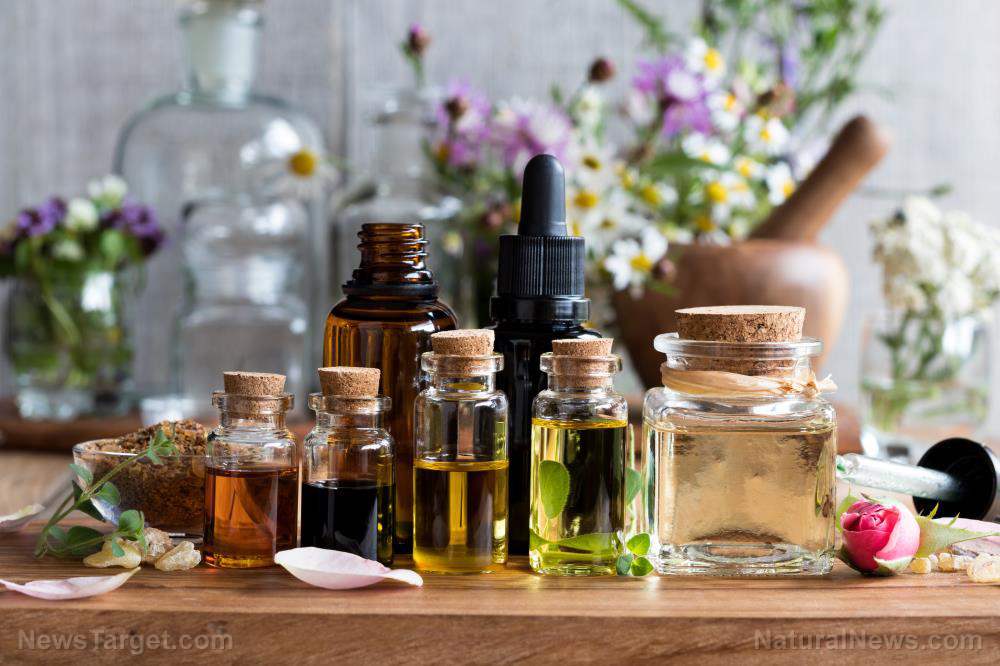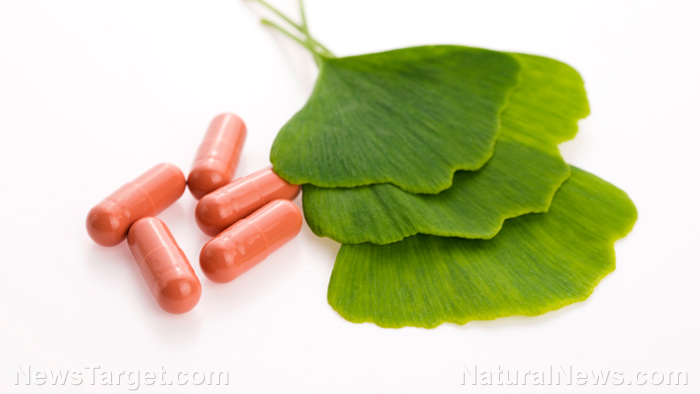Honey: An amazing superfood with many health benefits
04/23/2024 / By Zoey Sky
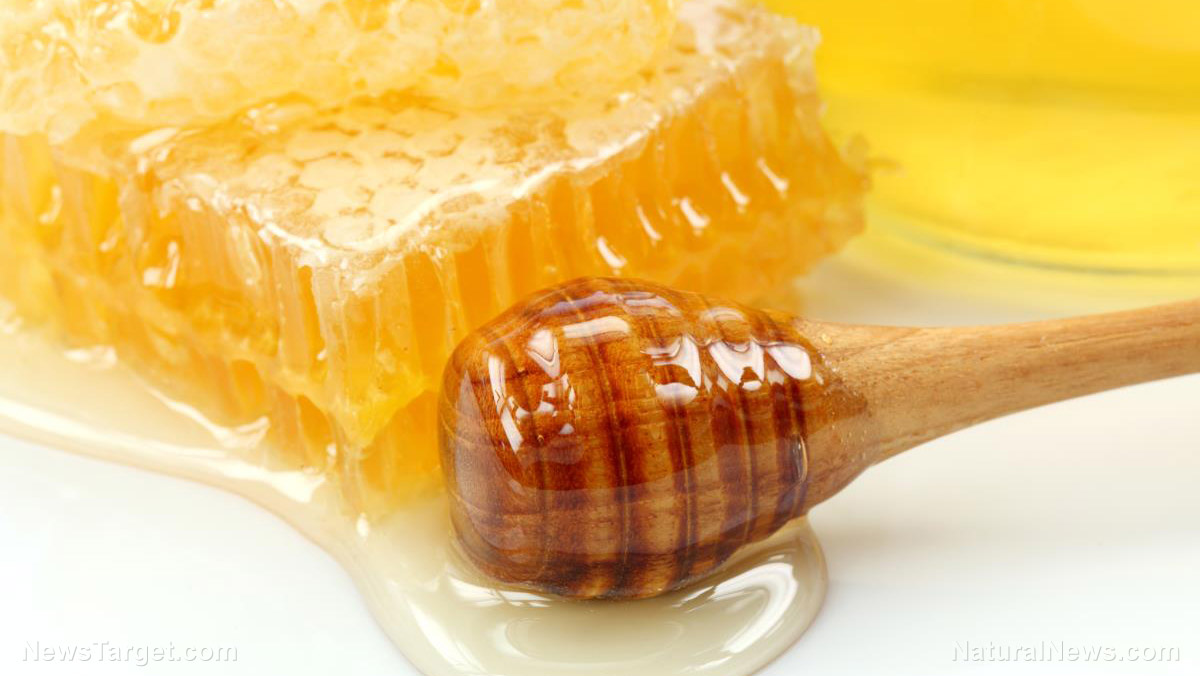
Honey is an amazing superfood that is full of nutrients and antioxidants. It also has antibacterial properties, making it a great addition to your prepper medicine cabinet or survival food stockpile. Here’s why you should start stocking up on honey before SHTF. (h/t to FoodStorageMoms.com)
Honey is a sweet liquid that honeybees produce from plant nectar. A common ingredient in many foods, honey is available in several different forms, such as raw honey or Manuka honey.
Common ingredient in home remedies and alternative medicine treatments
Honey also has several health benefits and is a common ingredient in many home remedies and alternative medicine treatments.
One tablespoon (20 grams) of honey contains the following nutrients:
- 61 calories
- 0 g of fat
- 17 g of carbs
- Riboflavin – One percent of the Daily Value (DV)
- Copper – One percent of the DV
Because honey is essentially pure sugar, it contains no fat and only trace amounts of protein and fiber. While honey contains small amounts of some nutrients, most people don’t usually consume enough for it to be a significant dietary source of vitamins and minerals.
However, honey is a great addition to a healthy diet because it is a great source of health-promoting plant compounds called polyphenols.
Honey is full of beneficial antioxidants
Minimally-processed honey is a great source of different important bioactive plant compounds and antioxidants, such as flavonoids and phenolic acids.
Darker honey varieties offer more antioxidants than lighter varieties.
Antioxidants can help neutralize reactive oxygen species in the body, which can build up in your cells and cause damage. Data suggests that this damage may be linked to health issues such as heart disease, premature aging and Type 2 diabetes.
Honey can support optimal heart health
One study suggests that honey may also help protect against heart disease because it helps improve blood fat levels, lower blood pressure, regulate your heartbeat and prevent the death of healthy cells. These factors can help boost heart function and health.
In an observational study, researchers worked with more than 4,500 volunteers over 40. The results showed that moderate honey intake was linked to a lower risk of high blood pressure (hypertension) among women.
Raw honey usually contains propolis, a resin that bees produce from sap-producing trees and similar plants. Data suggests that propolis may improve cholesterol and triglyceride levels.
Honey is better for blood sugar control than regular/table sugar
If you are worried about blood sugar management, honey may offer some benefits over regular sugar.
While honey raises your blood sugar level like other types of sugar do, the antioxidants in honey may help protect against metabolic syndrome and Type 2 diabetes.
Scientists have revealed that honey may increase adiponectin levels, a hormone that reduces inflammation and improves blood sugar regulation. Data also suggests that daily honey intake may improve fasting blood sugar levels in individuals diagnosed with Type 2 diabetes.
Honey helps suppress coughing in children
Coughing is a common health issue for children with upper respiratory infections. These infections can affect both sleep and quality of life for children and parents.
According to a review of several studies on honey and cough in children, honey seems to be more effective than diphenhydramine for cough symptoms. Honey may also help reduce cough duration.
Another review revealed that honey may also help improve sleep quality among children with coughs, along with their parents. As a bonus, unlike some cough medicines, honey doesn’t have any negative effects. (Related: Herbs and honey: 7 Natural home remedies for a cough.)
Honey promotes wound healing
In the past, honey has been used topically to help treat wounds and promote burn healing. The practice is still common today.
According to a review of 26 studies on honey and wound care, honey was most effective at healing partial-thickness burns and wounds that have become infected after surgery.
Data also found that Manuka honey may have positive applications in burn treatments. Keep in mind that if you have a severe burn, home remedies are not a viable substitute for emergency care. Seek medical attention instead.
Researchers think that honey’s healing powers are due to its antibacterial and anti-inflammatory effects.
Easy to incorporate into a balanced diet
You need to shop smart when buying honey. Just because a container says it contains honey, it may not be honey. In other cases, it may only contain a tiny percentage of honey.
Try to look for organic or raw honey because some producers dilute honey with plain syrup. While honey adulteration is illegal in most countries, it is still a widespread issue.
Some containers may also have some harmful ingredients that you don’t want to feed your family.
Remember that honey is a type of sugar and that consuming it will cause your blood sugar levels to rise. Additionally, eating large quantities of honey, especially consistently over a long period, can contribute to weight gain and increase your risk of diseases like heart disease or Type 2 diabetes.
Honey is easy to incorporate into a balanced diet. You can get a small boost of antioxidants from honey by using it as a natural sugar alternative.
You can use honey as a glaze for roasted vegetables or grilled meats for a caramelized finish. Try adding honey to baked goods like cakes, cookies and muffins for added moisture and sweetness. You can also add honey to marinades or sauces to give savory dishes a hint of sweetness. Try combining a bit of honey with mustard or mayo for a simple and tasty sandwich spread or veggie dipping sauce.
Visit FoodSupply.news for more stories about superfoods that you should have in your food stockpile.
Watch the video below to learn more about the health benefits of Manuka honey.
This video is from the Health Ranger Store channel on Brighteon.com.
More related stories:
Prepping tips: How to prepare a food storage starter kit.
Food supply 101: Energizing foods to stock up before disaster strikes.
See clearly with this sweet cure: Study shows honey can help treat dry eye disease.
The ANTIBACTERIAL potency of honey: A natural alternative to prescription antibiotics.
Sources include:
Submit a correction >>
Tagged Under:
alternative medicine, antioxidants, emergency food, emergency medicine, food cures, food is medicine, food science, food supply, honey, natural health, natural ingredients, natural medicine, preparedness, prepper, prepping, remedies, research, survival, survival food, tips
This article may contain statements that reflect the opinion of the author
RECENT NEWS & ARTICLES
COPYRIGHT © 2017 NATUROPATHY NEWS


